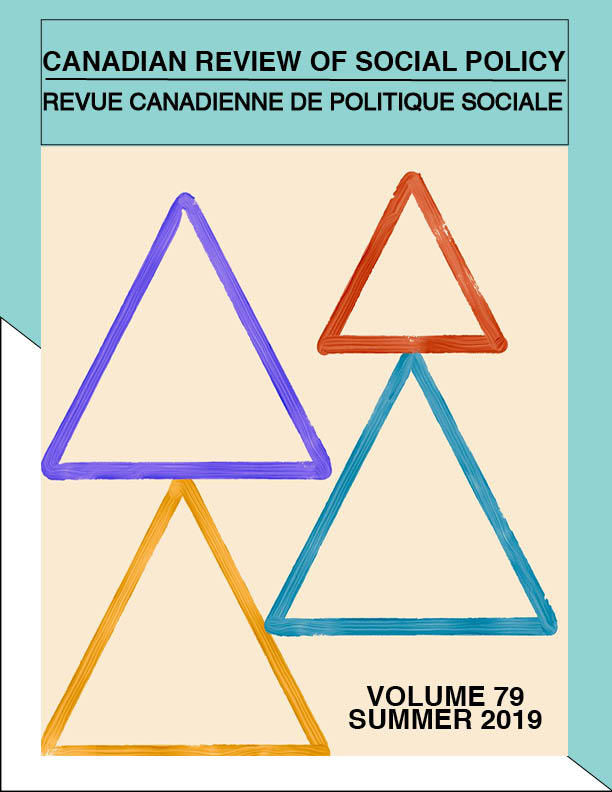Encadrement juridique du congé hospitalier en contexte de délégation de soins aux proches aidants: portrait de la responsabilité civile des acteurs
Mots-clés :
Proches aidants, congé médical et hospitalier, responsabilité civile médicale / obligations des professionnels de la santé, responsabilité civile hospitalière / obligations des établissements / délégation de soinsRésumé
Le réseau de la santé publique du Québec mise sur la prestation des soins à domicile pour s’adapter aux pressions financières découlant des changements sociodémographiques. Les proches aidants se retrouvent donc de plus en plus sollicités pour contribuer au maintien d’un domicile sécuritaire. Toutefois, les médecins et les établissements ont des obligations légales à l’égard du patient et des proches aidants. Ces derniers constituent un groupe vulnérable et les établissements de santé adoptent parfois des politiques internes qui vont à l’encontre du bien-être des proches aidants. Cet article vise à clarifier l’encadrement juridique s’appliquant aux proches aidants lors de la détermination du congé médical et hospitalier des patients. Une étude juridique a été effectuée, ciblant la jurisprudence et la doctrine québécoise en matière de responsabilité civile médicale et hospitalière. Les résultats de cette étude dressent un portrait exhaustif de la responsabilité civile du médecin, de l’établissement, ainsi que du proche aidant, dans le contexte du congé médical et hospitalier.
Abstract
Quebec’s public health network focuses on the provision of home care to cope with the financial pressures arising from sociodemographic changes. Caregivers find themselves more and more solicited to help maintain a safe home. However, physicians and facilities have legal obligations to the patient and caregivers. The latter are a vulnerable group and health institutions sometimes adopt internal policies that go against the well-being of caregivers. This article aims to clarify the legal framework applicable to caregivers when determining the medical and hospital discharge of patients. A legal study was carried out, targeting case law and the Quebec doctrine on medical and hospital liability. The results of this study provide a comprehensive portrait of the liability of the physician, the facility, and the caregiver in the context of medical and hospital leave.
Key words: Caregivers; medical and hospital leave; medical liability/obligations of health professionals; hospital liability/obligations of institutions/devolution of care
Téléchargements
Publié-e
Comment citer
Numéro
Rubrique
Licence
1-The author guarantees that the manuscript is an original work not published elsewhere in print or electronically in whole or in part, except in abstract form, that the author has the full power to make this contribution, and that the manuscript contains no matter libelous or otherwise unlawful or which invades the right of privacy or which infringes any proprietary right.
2-The author guarantees that the manuscript has not been previously published in print or electronically and that if the manuscript contains any tables, figures or images fully reproduced or closely adapted from previously published material, the author must obtain the necessary permission from the author/publisher holding the original copyright prior to publication in CRSP. The author may be required to produce evidence of permission granted to CRSP’s editors.
3-As a condition of publication in CRSP, the author assigns all copyright to CRSP, including but not limited to the right to publish, republish, and otherwise distribute this manuscript in print, electronic, or other formats. As CRSP is a non-profit interdisciplinary scholarly journal, the author will receive no royalty or other monetary compensation for the assignment set forth in this agreement.
For the purpose of full disclosure, CRSP will not normally use the content provided by the author in a commercial venture, but for the purpose of disseminating the author’s content to as many readers as possible. For distribution, third parties engaging in commercial activities may be contracted to distribute the content globally, and such parties may make a profit out of the author’s content in their normal course of business. CRSP will not pay the author or reimburse the author in any form based on such commercial activities because the conduct of such commercial activities is outside the control of CRSP.
Any future reference to or use of this published material by the authors must acknowledge CRSP as the original place of publication.
PERMISSION REQUEST/ARCHIVING
Permission is given to author(s) receiving funding via Tri-Council Agencies, the Canadian Institutes of Health Research (CIHR), the Natural Sciences and Engineering Research Council of Canada (NSERC) and the Social Sciences and Humanities Research Council (SSHRC), to make their publications freely available in an Open Access repository within the stated deadline by the Tri-Council Agencies (12 months following publication). Archiving of publication must be a manuscript copy bearing none of the CRSP headers, footers or any other distinguishing marks. No links to the article on the CRSP website is permitted.
Permission requests from third parties to reproduce articles in part or full in academic/educational publications can be directed to the managing editor of CRSP, and will not be unreasonably denied.

